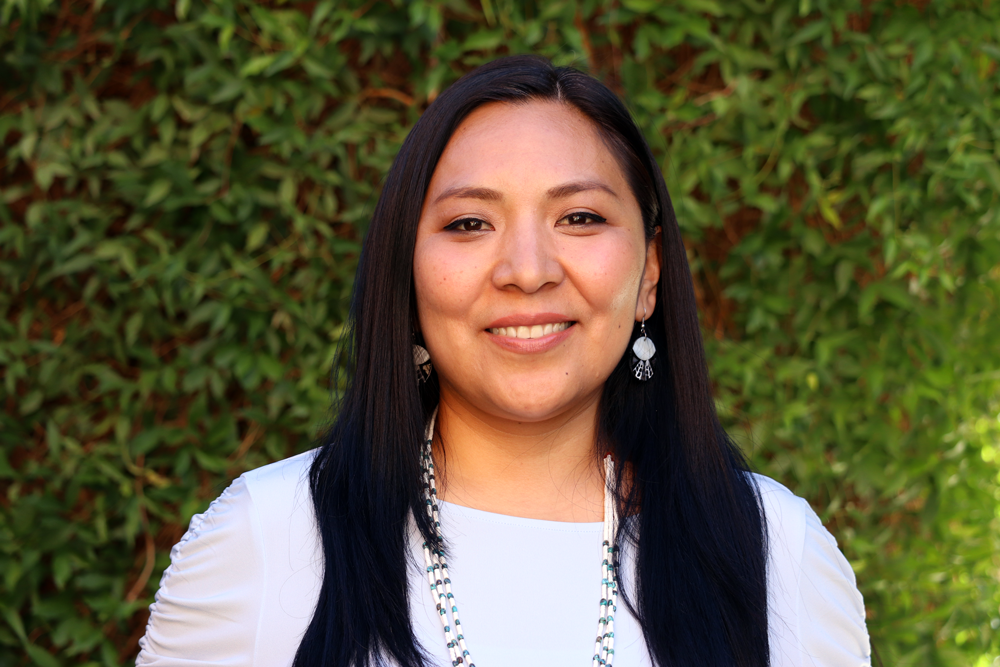Studying mining impacts at the intersection of the environment, policy and Indigenous communities
The broader impacts of Carrie's dissertation highlights the need to address environmental disparities and environmental justice in indigenous communities where indigenous people have often been left out of these conversations.
- Dr. Karletta Chief, nominator and co-faculty adviser
Tell us a little about yourself.
I am Hopi and grew up on the reservation in northeastern Arizona. I am from a farming and ranching family, with a strong foundation of Hopi traditions that encompass responsibilities of taking care of the land.
When I was younger, I was not exposed to "environmental science" in school. But as Hopi, we have traditional practices that are rooted in science and land stewardship. These traditions and practices have withstood the test of time because we are still continuing to uphold our ways of life.
I received my Master's in Environmental Science in 2012 and was not planning on continuing my studies, but was inspired by my brother pursuing a Ph.D. in Education. I was incredibly fortunate to have research funding, as well as support of faculty members and the Native community at the University of Arizona.
I had my daughter when I was very young, and she has been a big part of my journey and motivation to finish. I completed my program just as she is starting classes here at the University of Arizona!
What do you research and what are the broader impacts?
My research is driven by the impacts of uranium mining on my community and family on the Hopi Reservation.
When I was a young girl, we would drive past large piles of what looked like gravel every time we would go to our ranch. One day, I asked my father what it was. He didn't know any details, only that it was related to uranium.
As I went through school, I was determined to learn more about uranium mining. The Hopi Reservation is surrounded by the Navajo Nation, where there is a long legacy of uranium mining and milling starting in the 1940s. Today, there are hundreds of abandoned mine sites, mill sites and long-lasting environmental and human health impacts including chronic diseases like cancer. There is research and federal collaboration on the Navajo Nation, but nearly none with the Hopi villages who live adjacent to these uranium sites.
My research combines climate, plant and soil science, human health and policy to address a current environmental challenge for a community that has faced decades of environmental injustice.
There were three main components to my dissertation:
- I collaborated to engineer effective techniques for the containment of uranium milling waste, the leftover material from mining that I saw when I was a young girl.
- Besides studying current ecological processes above engineered covers at the sites, I also studied if disposal cell covers used to contain mining waste can withstand the test of time by investigating climate change scenarios.
- I worked closely with Hopi villagers to assess their risk perceptions to uranium mining and processing.
What did you enjoy most about graduate school and your research?
I appreciated the diversity of my department and learning what other students researched. It was also important to me that my department was interdisciplinary and not so concrete.
I sometimes felt out of place, but through the support of faculty and connection with minority and Native populations, like the University of Arizona/Sloan Indigenous Graduate Partnership and University of Arizona American Indian Science and Engineering Program, I was able to create a support system that helped me through graduate school.
Future plans?
I am currently a post-doctoral fellow at the College of Public Health looking to expand my skill set in human exposures to anthropogenic contaminants. I also was recently awarded a University of Arizona Early Faculty Award from the Agnes Nelms Haury Program to help me continue with my dissertation research and academic path.
Words of advice?
Get comfortable being in uncomfortable situations. Remember where you come from, because you have a unique voice to add to the discussion!


